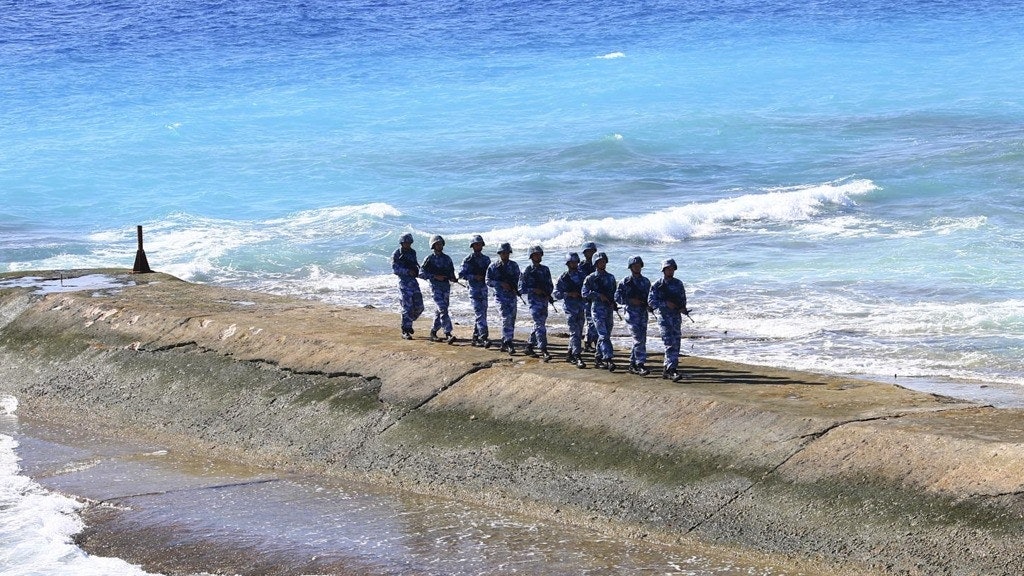Around November 8th, local time, various topics related to the “Nine-Segment Line” in the South China Sea were still controversial in the media and social networks throughout Vietnam. The latest news from Reuters and the British Broadcasting Corporation (BBC) Vietnamese channel was even more alarming when Vietnam’s official media, such as Vietnam News Agency, angered the “Nine-Day Line Maps into Vietnam” on the 7th.
According to reports, Vietnamese Vice Foreign Minister Li Huaizhong (“Lai Huaizhong”) made a speech between the 6th and 7th, saying that Vietnam or the South China Sea issue has “arbitration and litigation” and other coping styles. When such remarks are moved back to the Chinese media and then presented to the outside world with the words “unusual words”, any observer who is slightly conscious of the recent and recent movements will be shocked: whether the deviation is reported?
It must be admitted that although China is bordered by Vietnam, the Chinese media has always been unfamiliar with Vietnam. For example, until the previous 39 murders, few people would think of reading the media and getting information. This is also the case with Li Huaizhong’s “Question”.
According to the information, Li Huaizhong is the 11th East China Sea International Symposium jointly organized by the Ministry of Foreign Affairs of Vietnam, the Vietnam Diplomatic Academy, and the Vietnam Bar Association (VLA) and the country’s “East Sea” (ie South China Sea) Research Foundation (FESS). Speaking on the speech. This conference is a high-standard international conference held annually by the Vietnamese side since 2009.
Since Li Huaizhong himself is also the relevant person in charge of the long-term affairs of the South China Sea and China-Vietnam border affairs in the Ministry of Foreign Affairs of Vietnam, this makes his speech quite representative of the official attitude of Vietnam.
From the information obtained by the Vietnam Media, the World and Vietnam Daily, and the mainstream media of the Vietnamese Communist Party and the People’s Daily, the speech of Li’s speech also shows the level of technocrats: He pointed out that Vietnam has certain advantages in the South China Sea issue.
Li Huaizhong believes that the mainstream trend in today’s world is peace and development, and both China and Vietnam are also within the UN Convention on the Law of the Sea. Due to the high degree of attention on the South China Sea issue and the importance of regional peace, stability, and cooperation among neighboring countries, Vietnam still hopes to resolve issues such as the South China Sea dispute through peaceful negotiations, and it does not want competition factors to overwhelm cooperation factors.
Regrettably, this kind of speech is obviously not able to lift the appetite of the outside world.
For Western countries and observers, since 2018, the number of maritime military exercises and maritime frictions in the countries surrounding the South China Sea has increased, and the situation of oil disputes and competition for fishery competition has become increasingly fierce.
In late October, China’s “Marine Geology No. 8” in Wan’an Beach’s long-term cruises further opened its eyes. But after all, they couldn’t dig out more details of the smell of gunpowder from the mouths of political figures in Hanoi. When the Western world was not responsible for reporting deviations, the “rare speech” from the Vietnamese Ministry of Foreign Affairs appeared.
In fact, as the chairman of the 2020 ASEAN summit, Vietnam’s attitude on neighboring issues such as the South China Sea may have been lowered. Not to mention that many actions in Hanoi have also received support from Beijing. Also around November 3, Vietnamese Prime Minister Qi Chunfu, who was heading to Bangkok, had already talked to Chinese Premier Li Keqiang about the latest position in Hanoi.
Hunchun Fu certainly suggested that “the two sides should control their differences and prevent them from affecting the relations between the two countries,” but he stressed that “Vietnam attaches great importance to the development of Vietnam-China relations and is willing to take the opportunity of the 70th anniversary of the establishment of diplomatic relations between the two countries in 2020 as an opportunity to strengthen high-level exchanges and deepen Cooperation in various fields.” Li Keqiang also talked about the good political and economic environment between Beijing and Hanoi after “hoping that both sides firmly grasp the general direction of the development of bilateral relations” and “the two sides should properly handle the maritime issue and create favorable conditions for expanding exchanges and cooperation.” This will continue to be adjusted.
Indeed, as far as Vietnam’s political and economic situation is concerned, Vietnam is still a safe haven for China-US trade wars. It may lose opportunities due to the easing of China-US situation at any time, and its domestic livelihood environment has also been questioned by the outside world. . However, considering that Hanoi currently has established a strong relationship with Beijing based on the Agreement on the Regional Comprehensive Economic Partnership Agreement (RCEP), the CCP and the Communist Party’s inter-party exchanges are also quite historic. Therefore, many improper speculations about the Vietnam issue and reports of deviations will only stay at the level of the “hurricane”. There is no possibility of “ignition” in the high-level environment between China and Vietnam.












